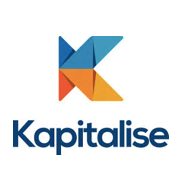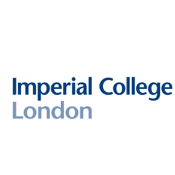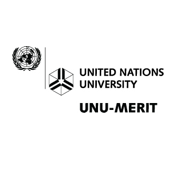WATSON Consortium
The WATSON consortium comprises six partners from four different European countries (UK, Ireland, Netherlands and Greece). WATSON is driven by three SMEs (Kapitalise, InventYa, Exodus) that have extensive expertise in innovation funding and data analytics. The academic partners of the project (Imperial College London, London School of Economics, University of Maastricht) are all leading European institutions whose research on innovation funding has helped shape the current R&D climate, which will assure the highest scientific standard of WATSON.
The project is led by Kapitalise Ltd.
Kapitalise Ltd. (London, UK)
Kapitalise is a UK-based SME that helps other SMEs access alternative funding through R&D tax incentives, as well as through grant and prize funding initiatives. Kapitalise has been able to secure over £3M in relief funding over over 100 SME clients.
Additionally, Kapitalise aims to improve education, understanding and support of government funding schemes by hosting and speaking at educational events throughout the United Kingdom and Europe.
Exodus S.A. (Athens, Greece)
Exodus is a software house with a strong background in delivering complex systems and solutions worldwide. Exodus’ main area of expertise is in developing cutting edge software solutions for the finance and telecom sectors.
Exodus operates its internal Innovation department, which is responsible for a large number of research activities and manages a portfolio of initiatives that aim to pave the way for the introduction and implementation of emerging technologies in the markets that Exodus serve. Exodus Innovation excels in driving progress in software engineering, big data management and analytics to create advances in sectors like security, health, creativity and learning.
Inventya Ventures (Dublin, Ireland)
Inventya is an innovation management company specialising in market intelligence and the commercialisation of new products in advanced science and technologies with core strengths in manufacturing, healthcare and cleantech.
Inventya work with businesses, academics, public research organisations and investors to provide market and customer insights to drive new product development and marketing strategies. In addition to providing clients with research on customer adoption issues, market dynamics, value chain analysis and economic analysis, Inventya has supported the exploitation and commercialisation of over 500 science and technology innovations for which they helped raise over £50M in private and public funding.
Imperial College London (London, UK)
Imperial is consistently rated as one of the world’s best universities. IC is a science-based institution with a reputation for excellence in research, focussing primarily on innovation and entrepreneurship, finance and health care management.
Imperial has a long history of innovation and partnering on EU projects, including ‘Competitiveness, Innovation and Intangible Investment in Europe’ (FP7) and ‘Photoacoustic and fluorescence imaging platform for biosensing applications: An innovative approach for the study of disease-related biomarkers’ (H2020), along with countless others funded by both the EU and the UK.
London School of Economics (London, UK)
LSE is a world leader in creating and sharing knowledge addressing major social challenges and to shape a better world, their mission being advancing knowledge in social sciences and informing public policy, economic decision-making and social welfare on multiple levels.
The Centre for Economic Performance (CEP), where this project will be based, is an interdisciplinary research centre at the LSE Research Laboratory. It was established by the Economic and Social Research Council in 1990 and is now one of the leading economic research groups in Europe.
Maastricht University (Maastricht, Netherlands)
UNU-MERIT is a research and training centre that is part of Maastricht University. UNU-MERIT’s mission is to provide more insight into the social, political and and economic context within which innovation and technological change takes place.
UNU-Merit participated both as a coordinator and as a partner in projects under FP4, FP5 and FP6. Under FP7 it is acting as the coordinator of the Floss project (DG INFSO), while also being involved in several others. UNU-Merit’s research programme is organised around five research themes based on common methodological approaches: micro-based evidence research on innovation and technological change, the role of technology in growth and development, knowledge and industrial dynamics, global business strategies and host country development, and the governance of science technology and innovation.





